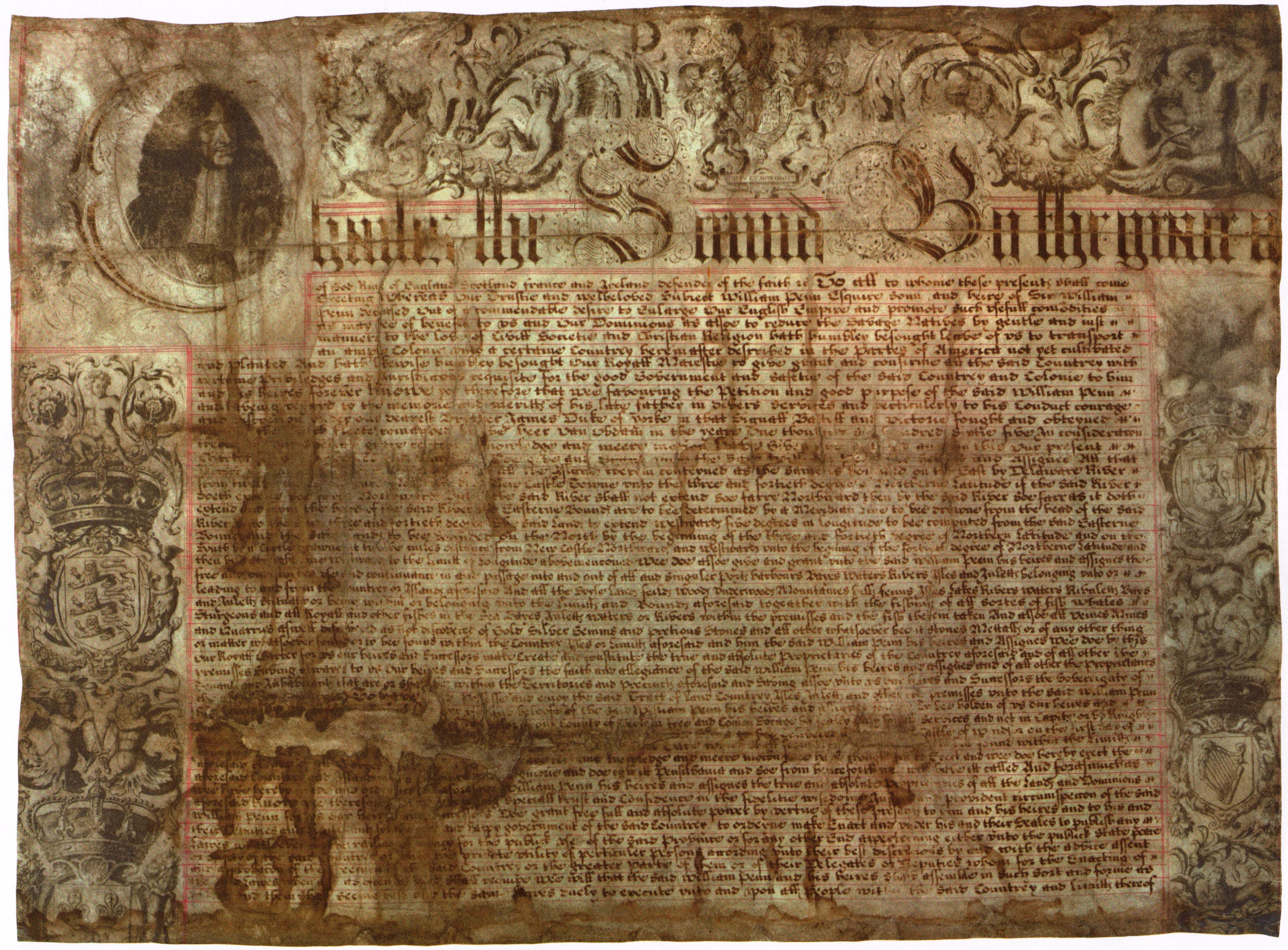On Sunday we honored William Penn’s early hopes for a land of freedom. Now we want to highlight the personal freedoms he made into law, just before sailing to his new colony in 1682:
“Persons living in this Province… shall in no ways be molested or prejudiced for their Religious Perswasion or Practice.” (Penn, Laws Agreed Upon in England, 1682)

In the late 1600’s individual freedoms were very seldom seen. Today we take privileges, such as religious freedom, acceptance of diversity, and many legal practices in our government for granted. Could you believe many of these had their beginnings as the radical ideas of William Penn? In 1681 a Charter was given by King Charles II and granted this ambitious young Quaker a large tract of land we know as Pennsylvania. During his years in England he experienced the wrath of religious persecution and unstable political rule. As Proprietor of this new land, he was able to set forth new laws and establish a government unlike any other of its time.
Another ground-breaking act was addressing individual rights. By establishing laws in accordance with the wills of the colony’s citizens and promising a representative government, Penn allowed for a more ethical form of authority. Other advances included lessening the harsh criminal punishments of English law, holding elections by secret ballots, ensuring an open court with a right to trial, allowing all people to testify on their own behalf, and enforcing the honesty of trial witnesses under penalty of perjury.

Though William Penn had no direct relation to the American Revolution, his individual beliefs and practices have impacted the manner of the birth of this nation. Give thanks on this Independence Day for the hard-won freedoms of those who came before!
By Raymond Tarasiewicz, Intern
